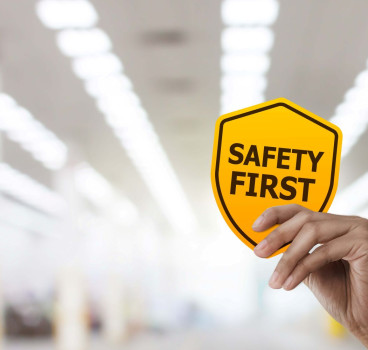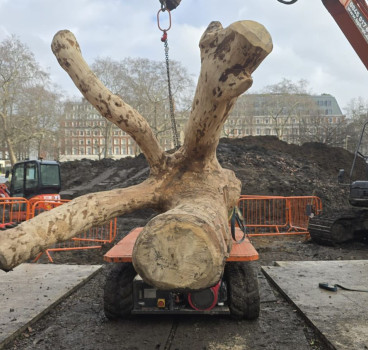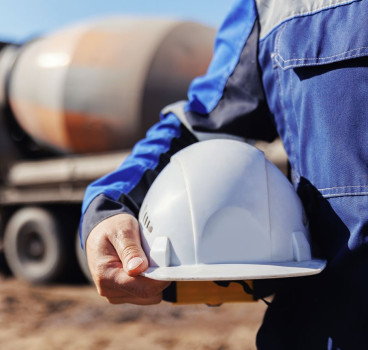The asbestos challenge and how we manage a global threat
Asbestos, once hailed for its durability and fire resistance, has left a dangerous legacy for construction worldwide. While many countries have banned or regulated its use, the material persists in buildings, posing significant health risks due to its association with mesothelioma, lung cancer and other diseases – and we must now decide how we manage this global threat – writes John Ridgeway.
In the UK, over 1.5 million buildings still contain asbestos despite its 1999 ban. Often present in insulation, roofing and flooring, the material remains a hazard, particularly for tradespeople during renovations. Organisations such as the UK National Asbestos Register have called for a centralised database to track asbestos locations, increasing safety awareness and mitigating risks. This effort aims to prevent accidental exposure, which annually causes severe illnesses among workers and residents.
In North America, the situation is similarly complex. In the United States, asbestos was heavily used until the late 1970s when the Environmental Protection Agency (EPA) began regulating its use due to health concerns. Despite this, asbestos is not completely banned, leading to continued exposure in various sectors, including construction, shipbuilding and automotive industries.
Canada faces comparable challenges, with asbestos mining being a significant industry until the 21st century. Although Canada officially banned asbestos in 2018, many older buildings still contain it. The Canadian government has initiated programmes to raise awareness and promote safe removal practices, yet a comprehensive national register akin to the proposed UK initiative remains absent.
In both countries, the lack of a centralised registry complicates the identification of asbestos risks. Homeowners and contractors often rely on outdated information, leading to potential exposure. Trade groups are calling for better regulations and educational efforts to combat this ongoing threat.
Australia's history with asbestos is particularly poignant. The country was one of the largest consumers of asbestos products, leading to a significant public health crisis. The use of asbestos was banned in 2003, yet its legacy continues to impact communities, particularly in the form of mesothelioma cases that have risen sharply in recent years.
In response, the Australian government has implemented a national strategy to manage asbestos risks, including the creation of the Asbestos Safety and Eradication Agency (ASEA). This agency focuses on raising awareness, providing resources, and promoting safe removal practices. Additionally, various states have established their own asbestos registers, allowing residents to access information about asbestos in public buildings and homes.
Despite these efforts, challenges remain. Many older homes and commercial buildings still contain asbestos, and public awareness about safe handling and removal is inconsistent. The push for a comprehensive national register continues as advocates argue that knowing where asbestos exists is crucial for safety.
In India, the situation is particularly dire. Asbestos use has surged over the past few decades, primarily due to its affordability and versatility. Despite international warnings, India has not enacted a complete ban on asbestos, leading to widespread use in construction, automotive and manufacturing sectors.
The lack of regulation has resulted in significant health risks for workers and residents alike. Asbestos-related diseases are becoming increasingly prevalent, yet awareness about these risks remains low. Trade groups are fighting for stricter regulations and a complete ban on asbestos, emphasising the need for a national asbestos register to identify and manage existing risks effectively.
Europe - a patchwork of regulations
Across Europe, asbestos regulations vary widely by country. The European Union has established strict regulations regarding the use and removal of asbestos, yet implementation and enforcement differ significantly. Countries like Germany and the Netherlands have comprehensive bans and robust safety protocols. In contrast, nations in Eastern Europe still have many outdated buildings and insufficient regulations.
The presence of asbestos in schools, hospitals and residential areas poses a threat to public health throughout the continent. This means that European nations are increasingly recognising the importance of national asbestos registers, facilitating awareness and safe handling practices. Initiatives similar to those proposed in the UK are gaining traction, emphasising the need for transparency and safety.
All this means that the call for national asbestos registers is gaining momentum across the globe. These registers would serve as essential tools for identifying and managing asbestos risks, providing critical information to homeowners, contractors and workers. By centralising data, such initiatives can enhance safety, reduce exposure and ultimately save lives.
Addressing the asbestos challenge requires a global effort to adopt stricter regulations, improve public education and implement effective management systems. By learning from countries that have made progress, the international community can work towards mitigating asbestos risks, protecting health, while ensuring safer living and working environments.
Additional Blogs

4 Must-Follow Health and Safety Habits for the Modern Jobsite
The risks in modern jobsites are constant. Falls, chemical exposure and heat illnesses continue to injure workers across construction and related industries each year. The best way to reduce those...
Read moreDesigning multi-functional outdoor spaces through the power of Play Trees
Outdoor spaces are increasingly expected to do more than simply look good. They must invite interaction, support wellbeing, encourage movement and foster connection across generations. In schools,...
Read more

4 Ways Resilient Construction Gets it Right and 4 Ways It’s Still Falling Short
Climate change is becoming increasingly disruptive as the weather becomes stronger and more unpredictable. These circumstances are constantly pressuring the construction industry, which has had to...
Read more